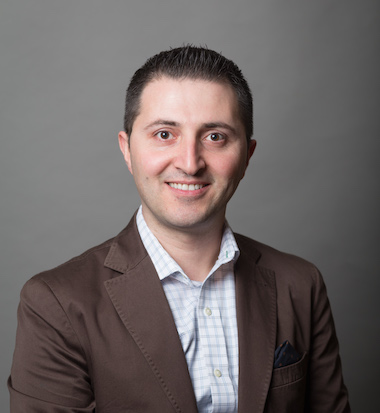“Why am I doing this?” is a question you should always ask yourself!
Why am I placing this implant? Am I replacing a missing tooth? Restoring esthetics? Providing function? Or am I doing something at a deeper level such as restoring confidence? Building a personality? Improving self-esteem? Uncovering the deeper meaning and the sense of purpose of why you are doing something is quite important.
Consider the following: Sisyphus, a Greek mythological character in Homer’s Iliad, book VI was punished for cheating death. He was made to roll an immense bolder up a hill, only to have it roll down to the bottom again, and Sisyphus would then have to roll it up again at infinitum. This was an eternal punishment of fruitless labors.
Meaningful vs. Sisyphus
Dan Ariely from MIT Sloan School of Management et al. conducted an experiment to investigate how perceived meaning influences labor supply. Forty Harvard University students were recruited and were randomly assigned to one of two separate groups: Meaningful (N = 20) and Sisyphus (N = 20).
In each of the two groups, subjects built Bionicle Lego models according to a declining payment per model. The subjects were paid $2.00 for the first model, $1.89 (11¢ less) for the second one, and so on linearly. For the 20th and every subsequent model, they received $0.02. When to stop making the models was the only decision the subjects made. At that point, they were paid, and the experimental session was over.
In the Meaningful group, the completed models would accumulate on the desk of the student. In the Sisyphus group, as soon as the student completed the first model and began working on the second, the experimenter would disassemble the first model and place the pieces back into the box. Hence, the models did not accumulate.
The time it took each subject to build each model was measured.
Even though the physical task requirements and the payment were identical in the two groups, the subjects in the Meaningful group built significantly more models than those in the Sisyphus group. Subjects in the Meaningful group built an average of 10.6 models and received an average of $14.40, while those in the Sisyphus group built an average of 7.2 models and earned an average of $11.52.
The reservation wage (the minimum rate at which a worker would be willing to accept a particular type of job) was significantly higher in the Sisyphus than in the Meaningful group: The median subject in the Sisyphus group stopped working at $1.40, while the median subject in the Meaningful group stopped at $1.01.
This finding is economically as well as statistically significant, as the median reservation wage in the Sisyphus group was approximately 40 percent higher than in the Meaningful group. The subjects in the Sisyphus group simply became disenchanted with their work and no longer cared about the tradeoff between time and money.
When considering an offer of an unpleasant or undesirable job, an individual might set a higher reservation wage. For example, he or she might happily work as a lifeguard for $10 an hour but would demand $40 an hour to work as a payment protection officer on public transportations.
Back to dentistry
Dentistry is regarded as a meaningful occupation that is associated with noble goals. Individuals presumably derive satisfaction from a feeling that their work promotes these goals, which in turn leads to lower reservation wages. This experiment underlines the importance of establishing a connection between the job that needs to be done and a sense of purpose. When that connection is severed, when there is no purpose, work becomes absurd, alienating, or even demeaning. Having a sense of purpose increases the value of day-to-day routine work in the whole dental team.
The question “Why am I doing this?” is difficult to avoid in professional situations where one’s work is repeatedly undone. In your day-to-day clinic work, try to ensure that your team is not demotivated. Educating your team on the meaning and purpose of the work you do will not only impact their wage reservation but will also provide a meaningful connection to the goals of your dental office as well as increasing motivation and satisfaction.
To find out more about managing your practice and your team, check out our flexible online Dental Practice Management course!






